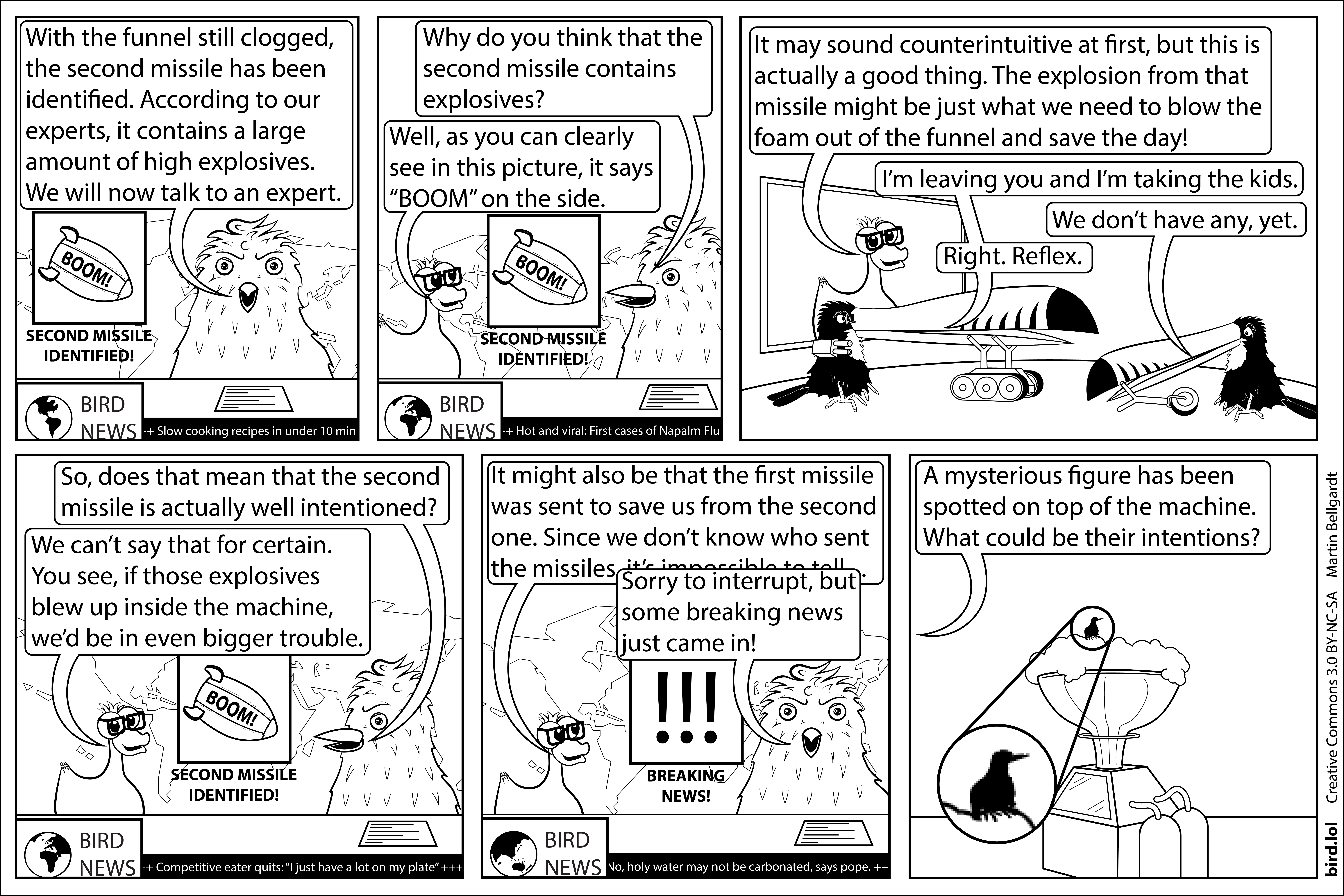I'm annoyed by how badly people seem to understand their emotions. Granted, it's not entirely their fault, since it's stupidly hard to talk about emotions. That's because all the vocabulary we have to describe emotions is painfully vague. There's so many distinct feelings we all lump together in categories like "fear", "anger" or "sadness" and don't get me started on all the different things "love" can be. It's all so unspecific that I tend to wonder if these words mean anything at all. Yet, it's nearly impossible to agree on more specific terms because emotions are internal states of a person and cannot be observed from the outside.
Think a moment about how unique emotions are in that regard. Humans have a tendency to study everything in hilarious detail and have invented words or even whole languages to talk about anything remotely complex. Try to talk to a mechanical engineer about screws or to a medical professional about drugs. There's so many words and concepts, all with precise meanings, that help those familiar with them to discuss their subject with impressive precision. However, nothing like this exists for emotions.
As a result, there's two big categories of people. I'm not saying you can put every person in these two categories, since claims like that are almost always nonsense. It's just that these are very common perspectives. First, there's people who falsely assume that emotions are as simple as the lack of language suggest and thus treat their emotions with too little respect. Second, there's people who realize that emotions are complex and see the lack of explainability as evidence that emotions are something mysterious or even divine.
I'd argue that both of them are wrong. Emotions are very complex, but they're fundamentally rooted in physical reality and can be studied, just like anything else we can observe. Annoyingly, not by means of literature research, but only by observation of the only study subject you have available: yourself. That is a lot of work, but I'd argue that it is very worth it. The reason being that you, and I'm talking to you as the conscious self that is processing this text, have a very important job. Your job is to make the best possible long-term decisions for the "you" which is all of you. These actions should be guided by your emotions, but you have the ability to override them for a reason. They are heuristics. An inferior model of what actions to take next. The fact that they sometimes suggest actions that are not in your best interest is the reason you evolved.
Once you've understood that, it's tempting to think that emotions are a relic of the past, a mechanism conceived by evolution that has now been superseded by you. You might think that you can make your own goals and just leave those stupid emotions out of the equation and just ignore them. Trust me, I've been there. But that's a fallacy, too. You'll go mad over the fact that there's no rational way to come up with goals. You'll be grasping for straws, looking for any axiom of how the world ought to be. David Hume will show you his guillotine.
No, you and your emotions need each other. It's the most important alliance of your life. Your emotions are incapable of modeling the staggering complexity of modern reality while you have no f**king clue where the f**k you're going. Imagine your body as a car. You're in the driver seat while your emotions are in the passenger seat. You know how to drive a car but you don't have any idea where to go. Your emotions have a vague idea of where they want to go but neither of you has a map. They give you instructions of what turns to take that are sometimes easy to understand and sometimes really confusing. They have no idea about traffic regulations and can't read signs, so they might tell you to drive the wrong way through a one-way street or onto a bike lane or even straight into the river. It's your task to find out where they want to go, but without following every instruction literally.
Rightfully, you might now ask: "After all these posts about being a nihilist, you suddenly tell us that that we actually do have a purpose?" - To which I say: Yes and no. In the end, it's all meaningless. It doesn't matter if you live or die after all. But since you are reading this, you probably have made the choice to live, at least for a while. A choice which I very much respect, since living is kind of fun. But with this choice come certain necessities. You have to breathe, you have to eat the right amount of calories and you have to treat illnesses that might occur. Living is a lot of work. I'd argue that the task described above is just as necessary for survival as these more straight-forward necessities. That's because of what your emotions can do if you mistreat them. They might shout at you, they might hurt you and in extreme cases they might even grab the steering wheel and run both of you off a cliff.
I realized while writing this blog post that it feels like a summary of my journey until now. I've written about some of the concepts before, but not in that much clarity. I actually have no idea if it made any sense to you, but it sure made a lot of sense to me. My journey is not over yet. There's this one giant problem that I've had for almost my whole life that despite all that thinking about life, emotions, nihilism, and consciousness I've not managed to solve it yet. Maybe I'll write about that in a future post.

